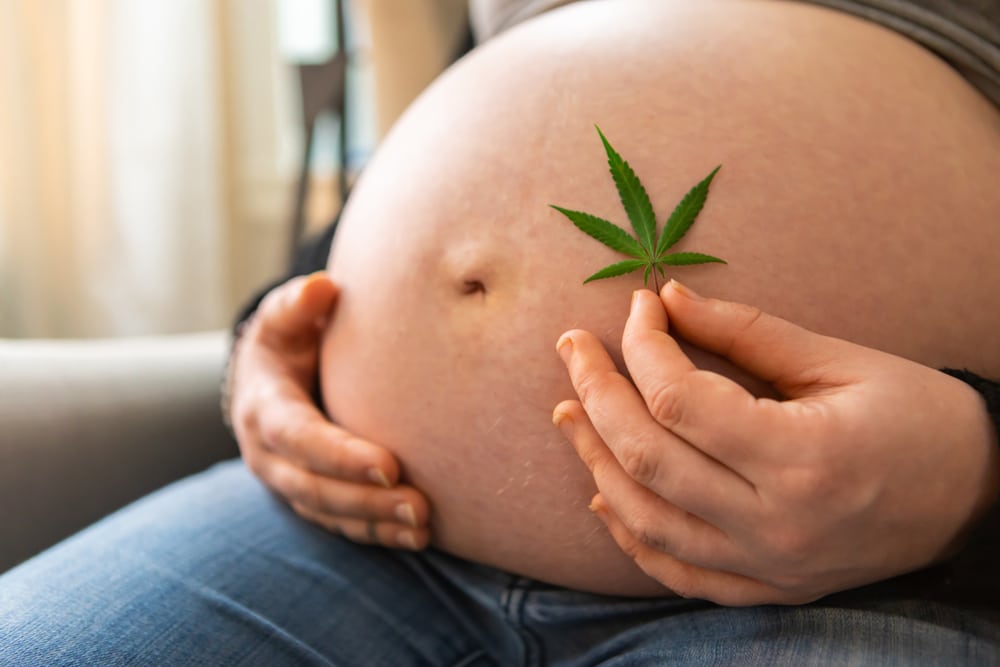As cannabis gains broader acceptance throughout the United States, discussions surrounding its use are increasingly prevalent—particularly among pregnant women.
A new study from the University of Georgia reveals a notable trend: among 4,338 expectant mothers surveyed, 5.7% admitted to using marijuana during pregnancy, frequently to alleviate symptoms such as nausea. The research indicated diverse methods of cannabis intake among pregnant women, including smoking, edibles, and tinctures.
Despite these findings, both the American Academy of Pediatrics (AAP) and the American College of Obstetricians and Gynecologists (ACOG) strongly advise against cannabis use during pregnancy, citing potential hazards to the developing fetus.
Reasons for cannabis consideration among pregnant women
Pregnancy can trigger nausea, difficulty sleeping, and stress—issues some mothers address through cannabis. While conventional medications exist, they may carry side effects, prompting many to consider alternatives. The University of Georgia study found that the majority of pregnant women who reported marijuana use were in early pregnancy, a period often characterized by severe nausea and vomiting.
Both ACOG and AAP maintain that no level of marijuana use is deemed safe during pregnancy, as THC—the primary psychoactive component of cannabis—can cross the placenta and potentially affect fetal growth.
“Women should definitely be counseled that it’s not a good idea to use marijuana while pregnant,” Dr. Seth Ammerman, a clinical professor of pediatrics at Stanford, shared with The Los Angeles Times. “If you’re breastfeeding, we would encourage you to cut back or quit.”
Potential risks to fetal health from cannabis exposure
While investigations into this area continue, existing studies have raised concerns about the implications of prenatal cannabis exposure:
Today’s cannabis is significantly stronger than in previous decades, which adds further complexity to understanding its long-term effects. In a clinical report, the AAP noted: “In recent years, the increase in potency of cannabis (which includes a sixfold to sevenfold rise in tetrahydrocannabinol [THC] content), the emergence of alternative cannabis consumption methods, and the use of electronic vapor devices pose substantial challenges for public health and clinical practice.”
Emerging research on maternal health risks
Beyond potential fetal effects, recent studies underscore risks to maternal health. A 2024 study by Kaiser Permanente found that pregnant individuals using cannabis in the early stages of pregnancy faced heightened risks of several medical conditions:
- 17% increased risk of gestational hypertension: A condition characterized by high blood pressure during pregnancy, which can lead to severe complications if not managed.
- 8% increased risk of preeclampsia: A serious condition associated with elevated blood pressure and potential organ damage.
- 19% increased risk of placental abruption: A serious occurrence where the placenta separates from the uterus prematurely, posing risks of heavy bleeding and threatening both the pregnancy and the mother’s health.
- 9% more likely to gain excessive weight and 5% more likely to gain inadequate weight: Both extremes can elevate the likelihood of complications and negatively impact the baby’s development.
These findings reinforce the recommendations from ACOG and AAP to avoid cannabis consumption during pregnancy and breastfeeding. Medical organizations advocate for open, non-judgmental discussions with healthcare providers to identify safe options for symptom relief.
“Research indicates that pregnant individuals are inundated with misleading information from social media, cannabis retailers, and peers suggesting that using cannabis during pregnancy is safe,” said Kelly Young-Wolff, the lead author of the study and a research scientist at Kaiser Permanente Division of Research. “Our study provides timely and significant data that adds to the expanding evidence indicating that cannabis use during pregnancy is not safe.”
Alternatives for safe symptom management during pregnancy
For addressing symptoms like nausea during pregnancy, safe alternatives include ginger, acupressure, and specific medications approved for use during pregnancy. Relaxation practices and prenatal yoga might also be beneficial, with healthcare providers offering tailored suggestions. For further guidance on managing cannabis use and motherhood, refer to Cannabis Use in Motherhood.
The takeaway: While the trend of “cannamoms” is rising, AAP continues to advocate caution during pregnancy. By staying informed and consulting with healthcare professionals, expectant mothers can make decisions that prioritize their health and their baby’s future welfare.
Image Source: Valmedia / Shutterstock



































